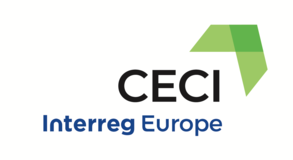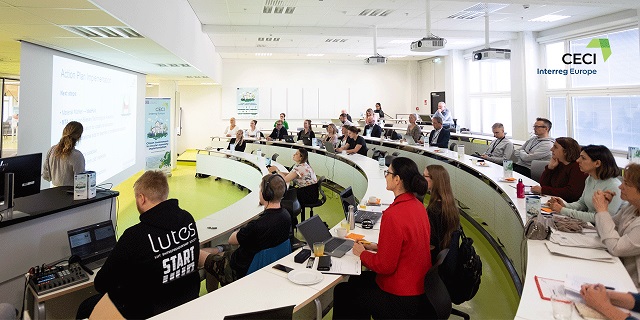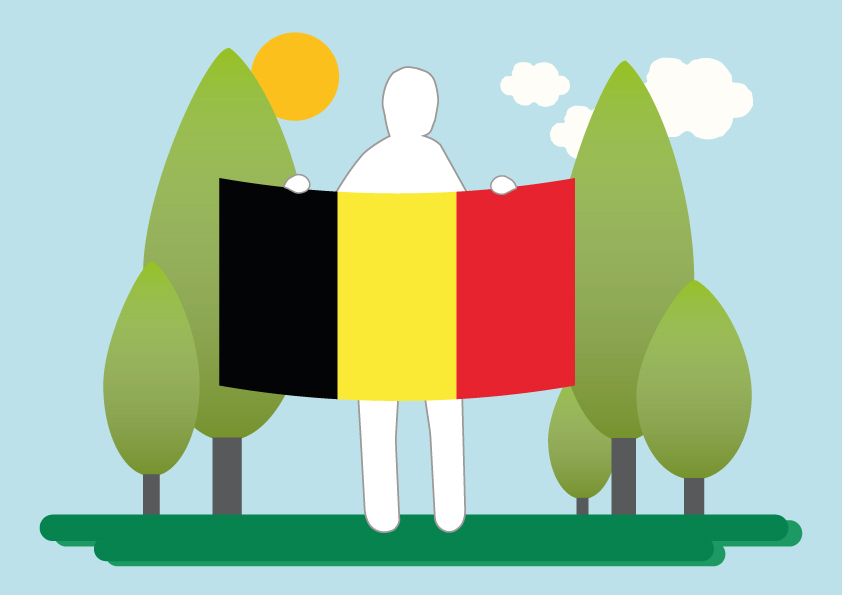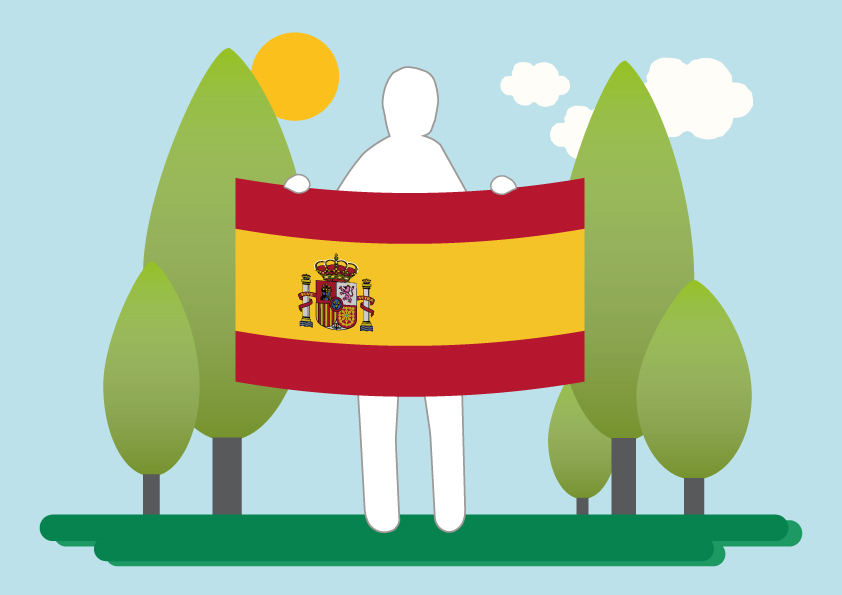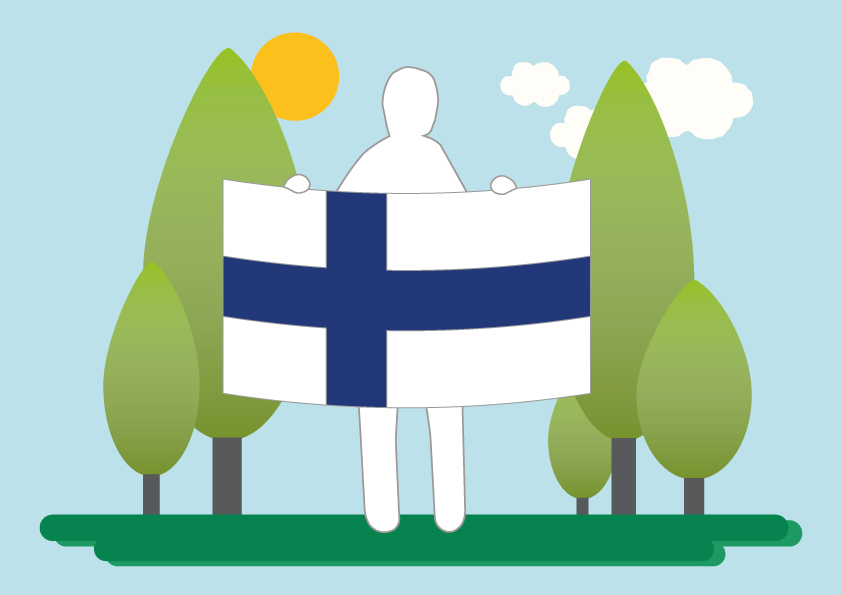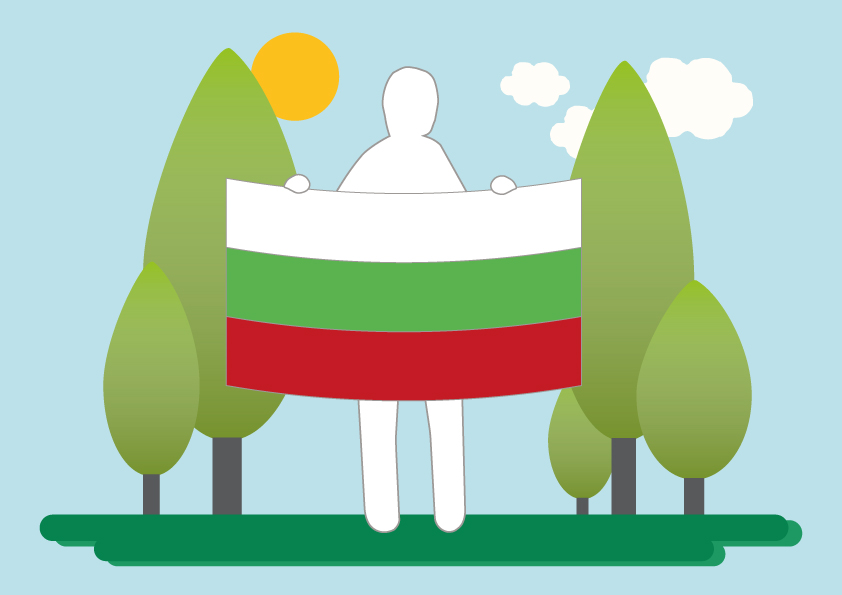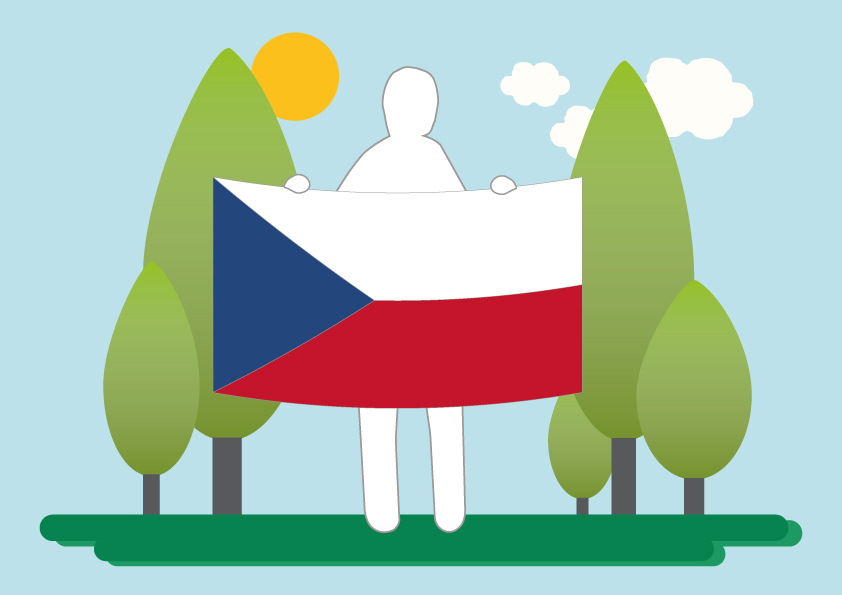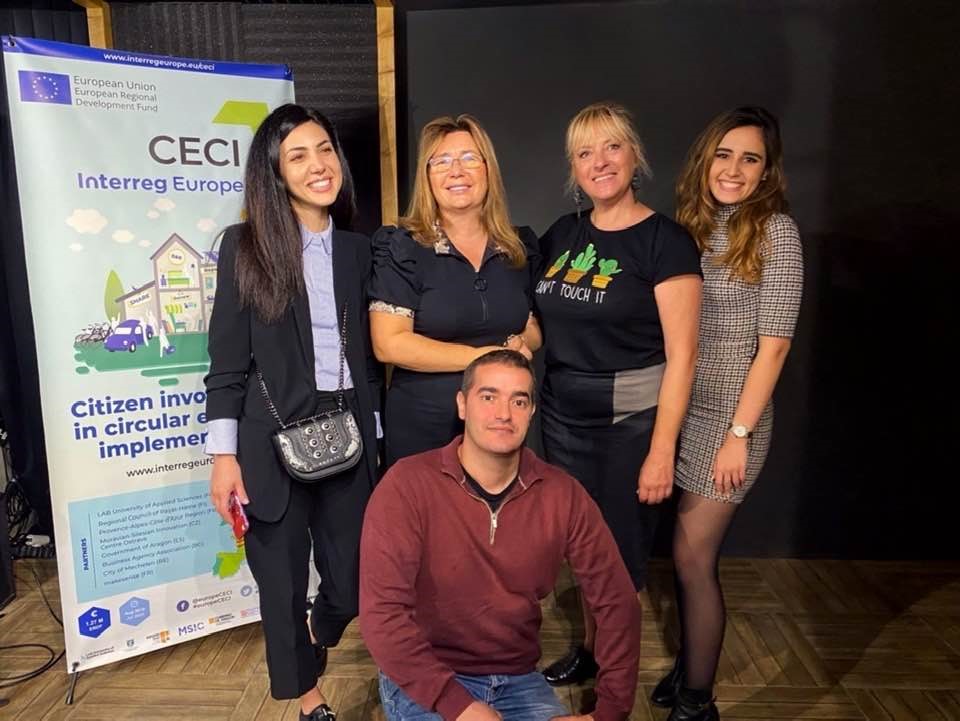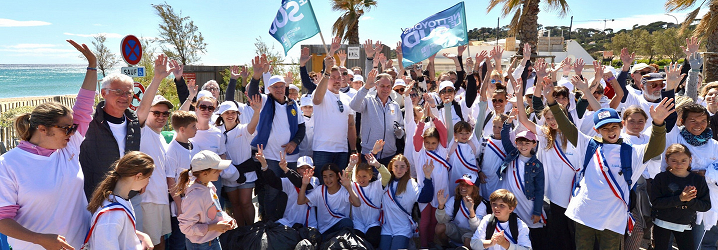Sustainable Services for Citizens in Päijät-Häme Region
Climate and Circular Economy workshop was held on 26th September 2019 in Lahti, Finland by the Regional Council of Päijät-Häme. The workshop brought together various regional stakeholders and circular economy experts to discuss and brainstorm on three focus areas (1) New Services, (2) Material Loops and (3) Pioneership. The aim was to identify the current state, the short-term means and long-term means to reach the goals set for circular economy and climate change mitigation. Afterwards, every participant selected the three most important means in all three focus areas.
The focus areas discussed were in line with the Päijät-Häme Roadmap Towards Circular Economy, and its five themes depicted in Image 1 (Päijät-Hämeen Tiekartta 2017).
Image 1. Interlinkage of the CECI project and the Päijät-Häme Roadmap Towards Circular Economy. Photo: Katerina Medkova.
Recently started Interreg Europe project CECI – Citizen involvement in circular economy implementation was introduced and promoted discussions on the New Services topic.
Insights of the Stakeholders
Various circular economy applications for residents already exist in the region, such as RESELL recycling service, online flea markets, Nappi Naapuri (platform for residents to change services or goods in their neighbourhoods) and sharing services (cars, bicycles, sewing machines), but there is a great potential and need to provide more applications (LAMK 2018; Nappi Naapuri 2019). Among the missing activities were mentioned e.g. inspiring workshops, loan service of clothes and toys, farming cooperative, a common platform for services and comprehensive sharing services.
The most popular short-term means were property and environmental management services, new ways of collecting recyclables and waste, activation of residents and awareness-raising on the impact of consumption, recycling material bank and community centre for sustainable lifestyle (one place for information, tips, workshops, discussion etc.). The long-term means concerned the environmental impacts of consumption, change of attitude, systemic transition towards circular economy, legislation, social sustainability and sustainable design.
Image 2. Identifying and voting on short and long-term measures related to new sustainable services for citizens as a part of the CECI project. Photo: Johanna Snell.
Summary
Evidently, there is a strong need for new sustainable services, especially regarding living and more user-friendly waste collection systems available both in urban and rural settlements. Citizens should be better informed about consumption choices and their impacts. Existing platforms and applications should be further developed and be better managed to become widely available to the public. To summarize the findings, a sustainable lifestyle should become attractive and easy for residents and businesses. Different levels of both the public and private sectors should cooperate to enable the systemic transition towards sustainability.
The workshop provided valuable input to the CECI project, the regional Climate Change Mitigation Roadmap process and to the updating of the Päijät-Häme Roadmap Towards Circular Economy.
The article was originally published on the LAMKgreen blog on 21.10.2019 and is available here.
